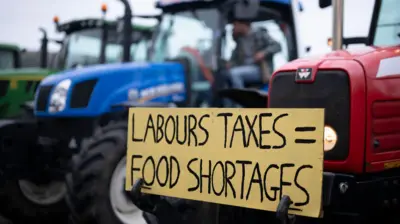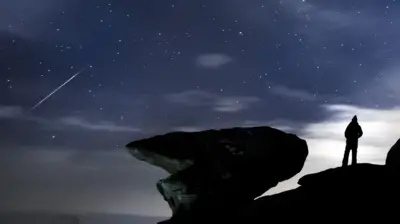We've updated our Privacy and Cookies Policy
We've made some important changes to our Privacy and Cookies Policy and we want you to know what this means for you and your data.
Bahrain protests: Your stories
Bahrain has been the centre of anti-government protests in the last two days, in which two people have died in clashes with security forces.
On Tuesday, a mourner was shot dead at the funeral of a protester killed when police fired a barrage of tear gas and rubber bullets in the capital, Manama. The king of Bahrain has gone on television to announce an investigation into the deaths.
Here, Bahrain residents share their experiences of the protests:
Anmar, Manama
I'm now at the Lulu/Pearl roundabout in Manama along with thousands of people. We haven't been attacked by police. The roundabout is very central and close to ministries and commercial premises.
We are here protesting peacefully. We don't want to overthrow the regime, but want political reform.
We have just heard the king's speech saying they would investigate the deaths of the two protesters, but we don't trust this investigation.
The regime promised us constitutional monarchy ten years ago, but we still don't have any freedom of speech and there is a lot of corruption.
We will not stop until we get our demands. We don't want this constitution but the original one of 1973, which was chosen by the people of Bahrain.
The constitution should be agreed between the people and the government, not just one part. The prime minister has been in power for a long time - enough is enough.
What happened in Tunisia and Egypt encouraged us to move forward to ask peacefully for our demands.
Sayed Mahmood, Manama
I am trying to reach the Pearl roundabout in Manama to join the protests but the police are closing all the roads that lead there. We are trying different routes but we don't know if we will be able to get there.
Earlier, I went to see the protests in Daih, the village where protester Ali Mushaima, who was killed on Monday, was being buried.
The protests are peaceful. People are not using Molotov cocktails or throwing stones.
They started asking for more freedom, for the improvement of conditions in Bahrain.
But after the death of the two protesters, they started asking for more things, like the resignation of the prime minister, who has been ruling the country for almost 40 years.
I think the protests were started by young people who organised themselves using social media and Twitter, but older people are now joining them.
Mohammed Al-Maskati, Manama
I am the director of the Bahrain Youth Society for Human Rights.
The protests started two days ago in the villages of Karzakan and Nuweidrat. The protests have been peaceful, but the police have been increasingly using violence.
We are currently in Ali Mushaimi's village for his burial.
People are protesting against the violation of the prisoners' human rights and torture. They are also demanding better living conditions, higher salaries and jobs.
They were definitely inspired by the events in Egypt and Tunisia - the young people I have spoken to say that if the Egyptians could do it, so could they.
They are now getting angrier as two people were killed. We are currently in Ali Mushaimi's village for his burial.
The people are sticking to their demands. This is a peaceful protest, not a violent one.
My Twitter is shut down; the internet speed has been reduced since yesterday. Today, no one has been able to uploads videos or pictures.
I have been a human rights activist for some years, and this is the first time we see this kind of movement, a peaceful one.
The people are expressing [themselves] and will not stop. Most of them are young people and say they will not move anywhere until they reach their demands. They feel part of several thousands of people, not a hundred.
'A', Manama
I am from the Philippines but have been living in Bahrain for the last 20 years.
The protests started in small villages where people initially just gathered and shouted out slogans, but are now spreading everywhere.
I think this has happened because the police wanted to stop people from converging in central Manama.
My view is that the Shia population has been protesting for a long time, but only recently because of what happened in Egypt and Yemen, they have realised that people can overpower the ruling class.
That has given them the impetus to do it.
As an expat, I think our sustainability might be in jeopardy because of these events. But this is something we expected to happen five or eight years ago. The change will come and we will adapt.
They will have to start hiring from within and developing the young people's skills in order to take over the kind of jobs that are available.
Top Stories
More to explore
Most read
Content is not available








